

Receive Email Updates
The UN General Assembly and UNESCO declared 2019 as the International Year of the Periodic Table (IYPT) of the Elements to honour the 150th anniversary of Russian Scientist Dmitry Mendeleyev’s discovery of his famous Periodic Law. WCC regional association RusChlor and its full members participated actively in all the Russian events held. In addition, RusChlor members held scientific workshops and exhibitions at their facilities in honour of this anniversary, which even involved manufacturing and distributing special free souvenirs to participants.
Dmitry Mendeleyev was born on 8 February 1834 in Tobolsk and died on 2 February 1907 in St. Petersburg, Russia. He was the embodiment of a Russian polymath (i.e. a scientist with encyclopedic knowledge) as he successfully produced some fundamental research works in the fields of chemistry, physics, metrology, meteorology, economy, aerostatics, agriculture, chemical technologies, public education in addition to numerous other works linked to the industrial development of Russia. He worked as Professor at St. Petersburg University, as well as Associate Fellow at the St. Petersburg Academy of Sciences. The famous Periodic Law features among his best known discoveries as a fundamental law governing the whole universe. Mendeleyev is also the author of the classic textbook entitled “The Essentials of Chemistry”.
The Periodic Law opened up a new era in the development of all the natural sciences. If the Law had not existed, then it would not have led to today’s interest in chemistry, physics, biology, and the other natural sciences, including the newest chemical products and technologies. The Academy of Sciences of the Russian Federation (RAN), Russian Dmitriy Mendeleev Chemistry Society, Russian and foreign scientists started a discussion on the feasibility of staging all the events considered relevant under the IYPT. The initiative then was upheld at UN level by a few countries worldwide, approximately 80 National Academies of Science and Scientific Societies, and some influential international NGOs including the International Union of Pure and Applied Chemistry (IUPAC) and the International Union of Pure and Applied Physics (IUPAP). The Opening Ceremony was officially staged at the Paris UNESCO headquarters on 29 January 2019.
The Presidium of the Academy of Sciences of the Russian Federation (RAS) then held an Inaugural Session on 6 February 2019 for IYPT on Russian soil. This day was chosen to celebrate both the Russian Science Day and Dmitriy Mendeleev’s birthday. In so doing, the Organising Committee cooperated with the heads of the various Federal Government’s Bodies, Agencies, and Departments as well as the leaders of the most prominent Scientific Research Institutes.
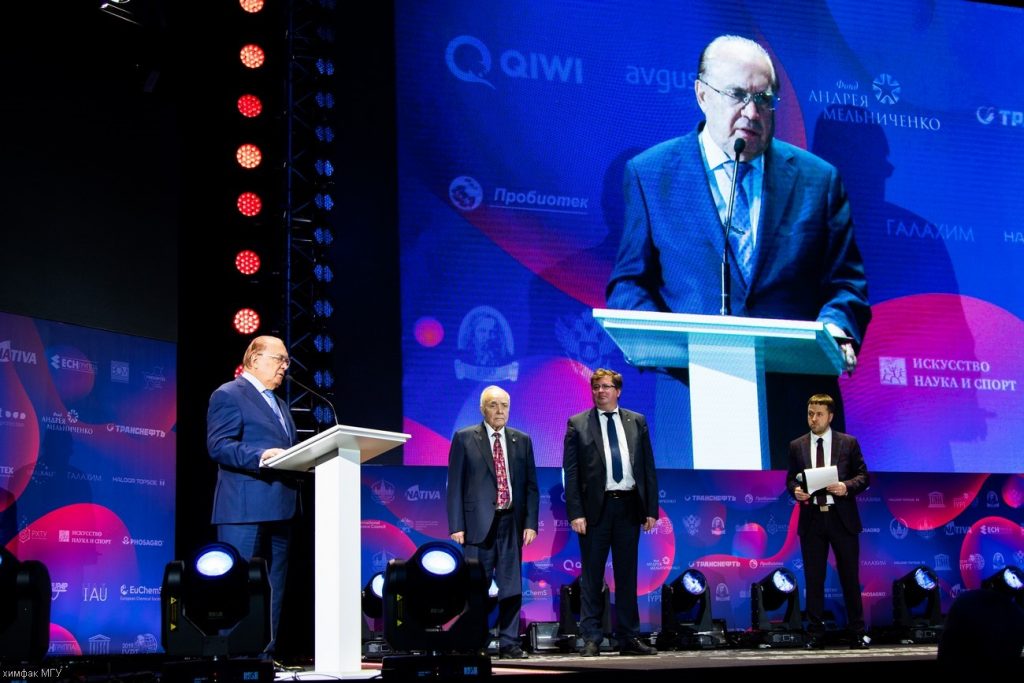
Closing Ceremony for the IYPT held on the premises of the Central Library of Moscow State University.
On 5-7 February 2019, the RAS also held an international exhibition aimed at featuring the history of both the chemical elements and chemistry itself, which has since travelled all over the world under the aegis of UNESCO. Works by Russian, British, French, Chinese, Japanese, and American Scientists were represented at the exhibition. Visitors were shown various artistic installations devoted to the Periodic Table and performed techniques ranging from macramé to the computer games. More than 500 scientific and educational events have been held this year in conjunction with the Mendeleev’s Table of Elements in the Russian Federation since the beginning of this year, including the All-Russia Festival “NAUKA 0+” and the All-Russia Forum of the Teachers of Chemistry. But the pivotal of all these events was the Mendeleyev 21st Convention on the General and Applied Chemistry held in St. Petersburg on 9-13 September 2019 with presentations from more than 2000 representatives of the Scientific Society from both Russia and abroad, including two Nobel Prize winners. IYPT-related events have occurred in almost every country in the world in addition to Russia, including the United States, Germany, Spain, Japan.
IYPT was ceremonially closed twice. Firstly unofficially at the Ceremonial Meeting held on the premises of the Central Library of Moscow State University on 28 November and secondly with the official ceremony held in Tokyo, Japan on 5 December 2019. Although these special activities have taken place this year, the work to widen the contact between scientists from all over the world, heightening the role of science and facilitating the support of scientific research all over the world needs to be continued indefinitely.
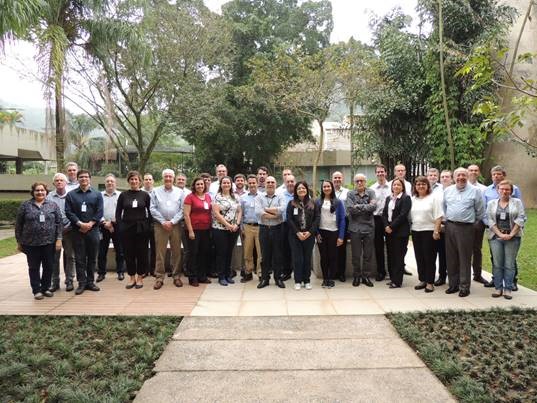 The Latin American Chlor-Alkali and Derivatives Industry Association (CLOROSUR) held a special meeting on the Minamata Convention on Mercury from 18-19 September 2019, which discussed among other topics the Brazilian Ministry of Environment (MMA) and the Brazilian Chlor-Alkali and Derivatives Industry Association (ABICLOR) strategy for the implementation of the Convention. The meeting, attended by 40 representatives of all producer members of the region, the Brazilian Ministry of Environment, financial institutions and others covered the Brazilian phase-out plan and technology conversion, plans for decommissioning, financing alternatives and the project information form for UNIDO to apply for a GEF fund (with ABICLOR as the co-executor). This is pending approval from GEF.
The Latin American Chlor-Alkali and Derivatives Industry Association (CLOROSUR) held a special meeting on the Minamata Convention on Mercury from 18-19 September 2019, which discussed among other topics the Brazilian Ministry of Environment (MMA) and the Brazilian Chlor-Alkali and Derivatives Industry Association (ABICLOR) strategy for the implementation of the Convention. The meeting, attended by 40 representatives of all producer members of the region, the Brazilian Ministry of Environment, financial institutions and others covered the Brazilian phase-out plan and technology conversion, plans for decommissioning, financing alternatives and the project information form for UNIDO to apply for a GEF fund (with ABICLOR as the co-executor). This is pending approval from GEF.
The meeting was held at one of the sites of a company that had already been through the conversion from mercury to membrane, so they also shared their lessons learnt. Each company presented the status of their plans to phase out or convert technologies. Other discussions were held on the best place to store metallic mercury before stabilisation and final safe disposal, residues, waste management, etc. Some companies who provide services to stabilise mercury were there from Germany and Switzerland.
Feedback from MMA, UNIDO and others were very positive, who said it was a pioneering event as all the stakeholders were there.
All this information was subsequently shared at the preparatory GRULAC meeting (The Group of Latin America and Caribbean Countries) on 29-30 October 2019, in São Paulo, Brazil, to examine the topics to be addressed at the COP 3 Minamata Convention, in Geneva, on 25-29 November 2019.
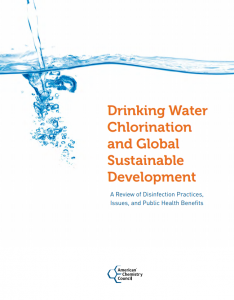 The American Chemistry Council’s Chlorine Chemistry Division (ACC CCD) has completed a new booklet entitled “Drinking Water Chlorination and Global Sustainable Development.” The booklet reviews the disinfection practices, issues, and public health benefits of drinking water chlorination in the context of the UN Sustainable Development Goals (SDGs), particularly in relation to SDG 6, Clean Water and Sanitation.
The American Chemistry Council’s Chlorine Chemistry Division (ACC CCD) has completed a new booklet entitled “Drinking Water Chlorination and Global Sustainable Development.” The booklet reviews the disinfection practices, issues, and public health benefits of drinking water chlorination in the context of the UN Sustainable Development Goals (SDGs), particularly in relation to SDG 6, Clean Water and Sanitation.
Specifically, the 32-page booklet details chlorine’s role in public health, water treatment fundamentals, risks and types of waterborne diseases, disinfection byproducts, water treatment facility security, disinfection methods, and the future of chlorine disinfection. It also reviews U.S. drinking water regulations, waterborne disease trends, and includes illustrative case studies of waterborne disease outbreaks to help prevent future incidents.
Safe drinking water is key to achieving the SDGs. Beyond it contributing directly to SDG 6, clean drinking water helps achieve other SDGs, such as gender equality (SDG 5) by reducing the burden on women and girls to fetch water, and good health and well-being (SDG 3) by reducing communicable diseases. The information in this booklet will help readers better understand the importance and challenges of providing safe drinking water, and its critical role in sustainable development.
In addition to the English version, the booklet has been translated into Mandarin to extend the reach of this important information.
 The World Chlorine Council (WCC) is pleased to highlight the effective use of chlorine chemistry to help preserve aquatic ecosystems around the world through ballast water treatment. Ballast water is the water taken into and discharged from ship ballast tanks to improve the vessel’s stability, buoyancy and maneuverability. Unfortunately, ballast water taken into a ship in one ecosystem that is later discharged into another ecosystem, can result in the spread of aquatic invasive species.
The World Chlorine Council (WCC) is pleased to highlight the effective use of chlorine chemistry to help preserve aquatic ecosystems around the world through ballast water treatment. Ballast water is the water taken into and discharged from ship ballast tanks to improve the vessel’s stability, buoyancy and maneuverability. Unfortunately, ballast water taken into a ship in one ecosystem that is later discharged into another ecosystem, can result in the spread of aquatic invasive species.
A case in point is the zebra mussel, which is indigenous to Russian and Ukrainian lakes and rivers, but now thrives in non-native freshwater environments worldwide. Zebra mussels clog water intakes, and displace native mussels, among other detrimental effects.
Under the International Maritime Organization’s Ballast Water Management Convention, ships of nations that are parties to the convention will be required to treat their ballast water before discharging it to receiving waters, to help protect aquatic ecosystems globally. This will help achieve the UN Sustainable Development Goal #14, which focuses on preserving life below water. Available ballast water treatment technologies include chlorine-based methods that employ hypochlorites or chlorine dioxide to destroy “stowaway” organisms in ballast water tanks. WCC’s new issue brief on this topic can be found here.
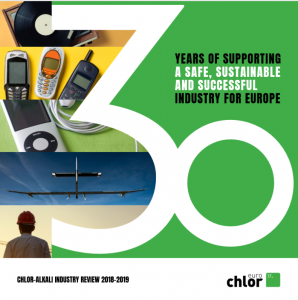 The 2018-2019 Chlor-alkali Industry Review has just been launched at https://chlorineindustryreview.com/. This version covers the most important industry information from the past year divided up into six sections:
The 2018-2019 Chlor-alkali Industry Review has just been launched at https://chlorineindustryreview.com/. This version covers the most important industry information from the past year divided up into six sections:
These include key stories, figures and updates so take a look now! As in previous years, a summarised version of the review is also available in print version that will be distributed at key events and as a PDF that can be downloaded from the bottom of https://chlorineindustryreview.com/.
For more information, contact Euro Chlor Communications Manager Catherine Birkner at cab [at] cefic.be.
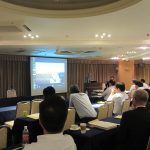 World Chlorine Council members JSIA (Japan Soda Industry Association) recently held a very successful meting on Technology, Safety and Environmental Issues in Kyoto, Japan.
World Chlorine Council members JSIA (Japan Soda Industry Association) recently held a very successful meting on Technology, Safety and Environmental Issues in Kyoto, Japan.
Over two days on 11 and 12 July 21019, 100 people gathered to discuss best practices in the safe production of chlorine and caustic soda (chlor-alkali) as well as to reward those chlor-alkali plants who were demonstrating the best peformance in this key area. Other essential discussions were on training and the sharing of near-miss experiences so that all attendees could learn how to avoid potential accidents in future.
Of particular interest were presentations on the ‘Jack Rabbit II’ initiative in the USA, which is aiming to better understand how chlorine behaves in the event of its accidental release.
JSIA members include chlor-alkali producers in Japan, all of whom readily attended this event. This was in addition to JSIA welcoming participants from their associate membership as well as expert external speakers.
This annual technical meeting occurred ahead of the World Chlorine Council General Assembly which will take place in Tokyo, Japan in October 2019. Here, more safety experiences will be shared between the global chlor-alkali community.
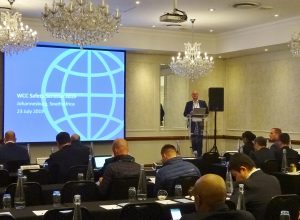 From 23-25 July 2019, the World Chlorine Council (WCC) held a successful Safety and Water event in Johannesburg, South Africa. With over 60 participants from across Africa, India, Europe and Asia, the three-day workshop brought together producers, distributors and users of chlorine.
From 23-25 July 2019, the World Chlorine Council (WCC) held a successful Safety and Water event in Johannesburg, South Africa. With over 60 participants from across Africa, India, Europe and Asia, the three-day workshop brought together producers, distributors and users of chlorine.
During the first day, the focus was on chlorine safety with diverse discussions on a range of topics. These included chlorine incident avoidance and risk assessment and the vital role that training plays in the safe handling of chlorine.
This was followed by a fascinating site visit to the Rietvlei Water Treatment plant, where participants learned how chlorine can be safely applied to disinfect drinking water to protect people around the world from water-borne illness. Of interest to attendees were the challenges faced in supplying both high quality and sufficient quantities of water.
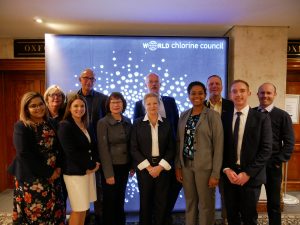 This led seamlessly to the final day, the African Water Forum. Here, a team of international experts instructed the audience on water related topics. These included how chlorine is essential in improving the health of 1.8 billion people world-wide who still drink contaminated water and the role of chlorine in achieving the United Nation Sustainable Development Goals (UN SDGs). They also gave presentations on supplying clean water at household, community and city scales, which were well received.
This led seamlessly to the final day, the African Water Forum. Here, a team of international experts instructed the audience on water related topics. These included how chlorine is essential in improving the health of 1.8 billion people world-wide who still drink contaminated water and the role of chlorine in achieving the United Nation Sustainable Development Goals (UN SDGs). They also gave presentations on supplying clean water at household, community and city scales, which were well received.
The African Water Forum was chaired by Deidre Penfold of the Chemical and Allied Industry Association (CAIA) who noted “The experts have provided us with a lot of excellent information. As part of our Responsible Care work, it is encouraging to see how people at all levels are contributing to the UN SDGs. The expert advice from this event will help to further develop South Africa’s input to these important goals”.
Many thanks were also given to Sasol and NCP Chlorchem, who hosted the meeting.
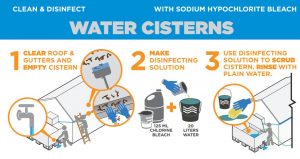 In collaboration with Andrew Robertson at the Water Engineers for the Americas, the World Chlorine Council has recently released a new, informative leaflet on how to disinfect cisterns using chlorine chemistry.
In collaboration with Andrew Robertson at the Water Engineers for the Americas, the World Chlorine Council has recently released a new, informative leaflet on how to disinfect cisterns using chlorine chemistry.
In many parts of the world, individual homes store collected drinking water in large tanks or cisterns. In order to keep these tanks clean and the household protected from water-borne illnesses, these tanks need to be regularly cleaned and disinfected. This helps to get rid of any potentially harmful bacteria or viruses that are growing within. Here, chlorine chemistry is vital due to the excellent and proven disinfectant properties of hypochlorite in addition to its affordability and applicability across a wide range of cistern sizes.
The new leaflet explains how to safely and effectively disinfect cisterns via simple diagrams. It is hoped that this leaflet can be used to safeguard the health of people in smaller communities across the globe.
Euro Chlor, the European chlor-alkali association, has just completed its 17 Successes programme and released their latest video. This initiative highlights the vital role that chlorine and caustic soda play in keeping Europe’s workforce safe and making their jobs successful.
Over 6500 people are directly employed in making chlorine and caustic soda (chlor-alkali) in Europe. From these chemical professionals come products that we rely on every day to make our lives easier, safer or healthier. Many jobs also need chlor-alkali chemistry and would be very different, less efficient or more dangerous without it.
Take a look at www.17successes.com where you can see all of the 17 Successes that have now been published! Taking ’17’ as inspiration (from chlorine’s position on the chemical Periodic Table of elements), this programme presents 17 real Europeans, whose success at work is all thanks to chlor-alkali chemistry. Postcards are available for download from each individual success on the website and both postcards and rollups from Euro Chlor Communications Manager Catherine Birkner at cab [at] cefic.be.

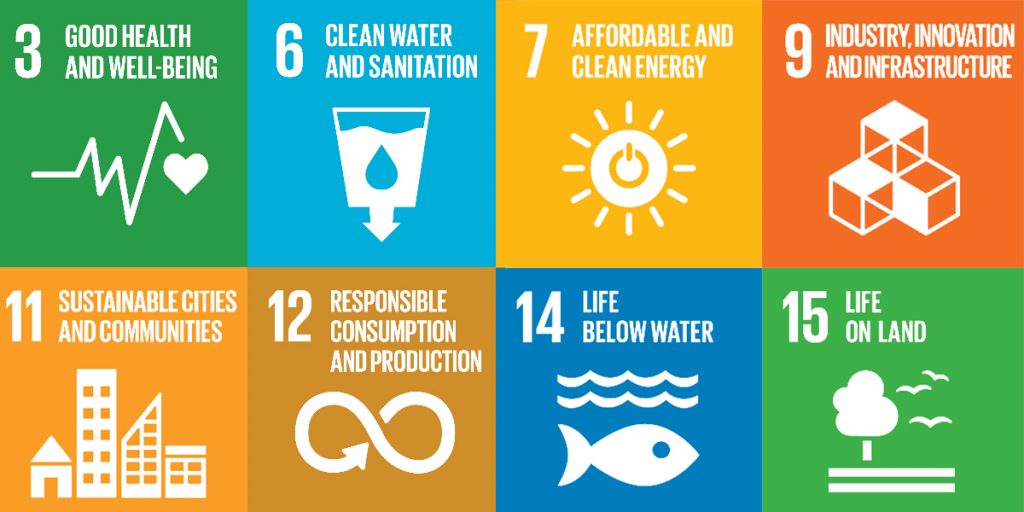 Chlor-alkali chemistry is essential to help achieve many of the United Nation’s Sustainable Development Goals (SDGs). The 17 SDGs are at the heart of global efforts to build a better world for people and our planet by 2030. Adopted by all United Nations Member States in 2015, the SDGs are a call for action by all countries to promote prosperity whilst protecting the environment. As such, the World Chlorine Council (WCC), has prepared a new website that lists the contributions that chlor-alkali can make.
Chlor-alkali chemistry is essential to help achieve many of the United Nation’s Sustainable Development Goals (SDGs). The 17 SDGs are at the heart of global efforts to build a better world for people and our planet by 2030. Adopted by all United Nations Member States in 2015, the SDGs are a call for action by all countries to promote prosperity whilst protecting the environment. As such, the World Chlorine Council (WCC), has prepared a new website that lists the contributions that chlor-alkali can make.
The WCC brings people together from around the globe to discuss, partner, and further global progress toward sustainability and achieve the SDGs, among many other topics.
You can find out more about which SDGs in particular are supported by chlorine chemistry on the WCC website at https://worldchlorine.org/sustainability/ or in this summary brochure.